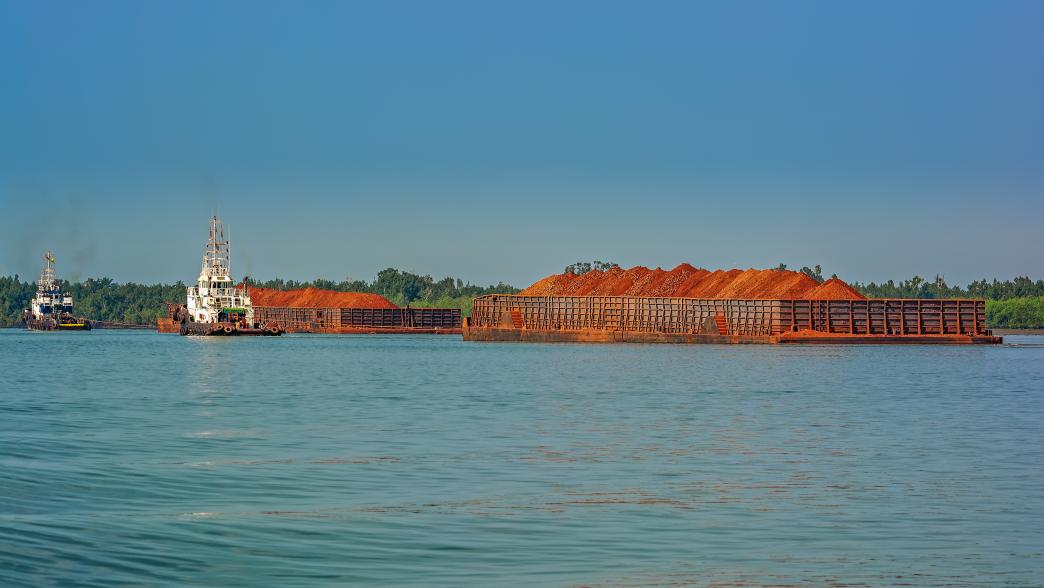
Guinean Communities Benefit from Mining Revenues and Civil Society Capacity Building
The Challenge
Like many resource-rich low-income countries, Guinea faces challenges in leveraging its natural resource wealth for sustainable development. Despite being the world’s second largest bauxite producer and rich in iron ore, gold and diamonds, Guinea has so far delivered only limited benefits from mining to its citizens, more than half of whom live in poverty.
Guinea introduced sector-wide reforms following democratization in 2010 and is successfully implementing the Extractive Industries Transparency Initiative (EITI). However, social unrest, political instability, and the impacts of the Ebola crisis and coronavirus pandemic have slowed the country’s progress toward ensuring that mining income helps improve citizens’ quality of life.
NRGI's role
As part of its support to Guinean civil society and its provision of technical advice to Guinea’s Ministry of Mines, NRGI has advocated the adoption of new subnational mining revenue-sharing mechanisms. The aim is to enable Guinea’s low-income communities in mining-affected and other areas of the country to sustainably share in the proceeds from mining.
Following elements of NRGI’s recommendations, the Guinean government committed from 2019 to fully implement its previously established contribution to local development (CDL) mechanism to finance the new Local Economic Development Fund (FODEL).
A 2019 NRGI report recommended ways to improve the implementation of these financial mechanisms for community development and local economic diversification. NRGI advised the government to avoid over-dependence on the mining sector and instead support family farming, local manufacturing and other forms of local entrepreneurship to promote self-employment and long-term food security.
At the same time, NRGI provided training, advice and selected grant funding to Guinean civil society organizations (CSOs), journalists and parliamentarians to strengthen public oversight of the country’s mining revenue flows. A key focus has been to enhance CSO monitoring of mining companies’ legal and contractual obligations and subnational mining-related payments and transfers, including through the use of smartphones in data collection and the production of a guide and videos on citizen monitoring. NRGI has trained more than 200 members of five mining communities to monitor state and company legal and contractual obligations.
Impact
With NRGI’s help, under the subnational finance provisions of Guinea’s reformed mining code and via the two local development funds, the country’s 342 municipalities have received mining-related payments totaling USD 42 million since 2019. Mining companies have paid $20 million directly to municipalities where they operate, while the government has disbursed a further $22 million around the country.
Action Mines, an NRGI civil society partner in Guinea, undertook a participatory evaluation of the first financial year of the Local Economic Development Fund (FODEL). FODEL comprises companies’ payments of a set percentage of their turnover (0.5 percent of sales for bauxite and iron and 1 percent for other mining substances) to subnational authorities in areas where their activities have direct impacts on communities.
Action Mines found that Guinea’s rural and urban prefectures and communes have invested receipts from the fund in a broad spectrum of infrastructure, public services, job creation and income generation projects.
Investments include improved water and sanitation provision; electrification for underserved communities and households; the building, enlargement and improvement of roads, bridges, schools, health centers, youth centers, markets, shops, kiosks and warehouses; purchase of municipal vehicles; new business enterprises such as market gardening and community agriculture; and tree nurseries for local reforestation. Municipalities reserve a fixed proportion of funds for women- and youth-led projects.
Guinean CSOs’ and local communities’ capacity in revenue and expenditure monitoring has developed significantly. Local citizen monitoring committees are now equipped to engage effectively with municipal authorities, and they have started to address shortcomings in the allocation of mining revenues.
Photo by Igor Grochev for Shutterstock.
